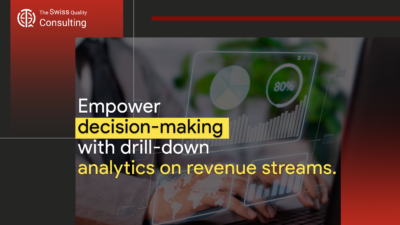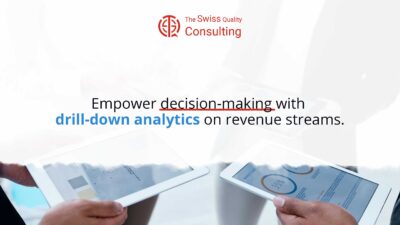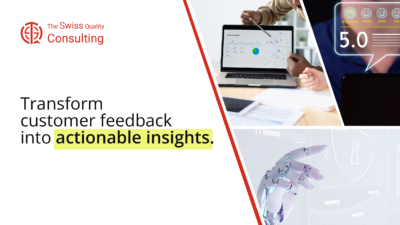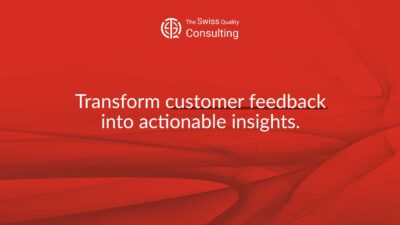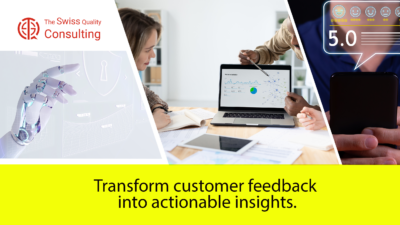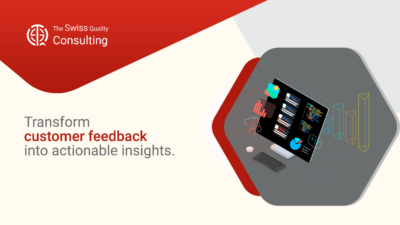Unlocking Growth: The Power of Data-Driven Revenue Generation
Explore new revenue streams by harnessing the capabilities of actionable business intelligence. For business executives, mid-level managers, and entrepreneurs, the strategic application of data is a cornerstone for uncovering untapped opportunities and driving business success.
The Transformational Impact of Business Intelligence
Business intelligence has emerged as a critical force in the contemporary corporate arena, transcending its role as a mere aggregator of data to become a fundamental driver of strategic innovation. In the information-dense age we operate in, the capacity to transform voluminous and disparate data sets into coherent, actionable insights is what distinguishes market leaders from their competitors. It is through the lens of advanced business intelligence that companies can interpret the granular intricacies of market trends, decode the complexities of consumer behavior, and navigate the nuances of the competitive landscape.
The application of advanced analytics and Generative Artificial Intelligence is pivotal in this context. These technologies offer more than just a retrospective view of business performance; they provide predictive insights that can forecast future market movements and consumer trends. Armed with this knowledge, companies are equipped to identify potential new areas for growth before they become obvious to the wider market. This proactive approach to strategy formulation and decision-making enables businesses to venture confidently into untapped markets and innovate new product lines aligned with emergent consumer demands.
Moreover, the transformative impact of business intelligence extends to operational efficiency. By analyzing internal processes through a data-driven framework, businesses can identify inefficiencies and bottlenecks, streamline workflows, and reduce costs, thereby freeing up resources to invest in exploring new revenue streams. This holistic view provided by business intelligence fosters an environment of continuous improvement and agility, ensuring that organizations remain resilient and adaptive in a rapidly evolving business landscape.
Change Management in the Age of Information
In the digital economy, where data proliferates at an unprecedented rate, the adoption and integration of this data into a company’s decision-making fabric necessitate a comprehensive change management strategy. It is not merely about the adoption of new technologies or systems, but a fundamental shift in organizational culture and processes. A robust change management approach acknowledges the fluidity of information and prepares businesses to pivot and adapt their strategies in real-time. Effective communication is the cornerstone of this approach, acting as the conduit through which change is not only disseminated but also accepted and embraced within an organization.
Effective change management in the context of business intelligence involves a multi-layered process. It starts with leadership buy-in, where the value of data-driven decisions is unequivocally endorsed from the top. This endorsement is the signal that cascades through the organization, empowering managers to become champions of change, driving the adoption of new tools and analytical methodologies. It also necessitates the development of new skill sets and the reconfiguration of teams to ensure that there is the capacity to interpret and utilize data effectively.
Moreover, seamless integration of business intelligence into existing operations is achieved when change management is not viewed as a one-off project but as a continuous evolutionary process. The aim is to cultivate a data-centric mindset across the organization where insights from business intelligence become the bedrock for strategy development, performance measurement, and process optimization. This ongoing process ensures that businesses are agile, responsive to market dynamics, and equipped to harness the full potential of their informational assets.
Change Management in the Age of Information
Integrating new streams of data into the decision-making process demands a robust change management strategy. Change is a constant in the digital economy, and effective communication is essential to manage this transition. By embracing change management principles, businesses can ensure a seamless integration of business intelligence into their operations.
Project Management: The Gateway to New Revenue Realization
Effective project management is crucial when it comes to implementing new initiatives based on business intelligence findings. It involves meticulous planning, resource allocation, and timeline management to ensure that insights lead to outcomes, specifically in terms of revenue growth.
Conclusion
For businesses looking to stay competitive and innovative, the exploration of new revenue streams through actionable business intelligence is not just a strategy—it’s a necessity. It’s about making informed, data-driven decisions that can open doors to new markets and opportunities for profitability.
#BusinessIntelligence #RevenueGrowth #DataDriven #BusinessStrategy




